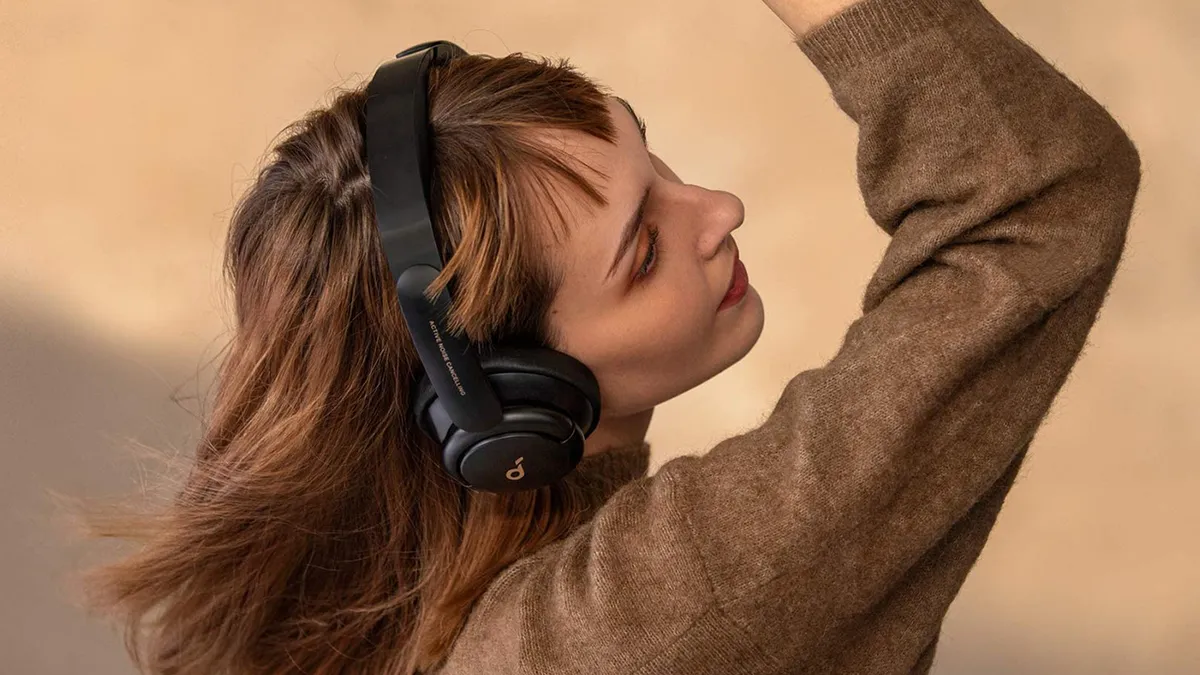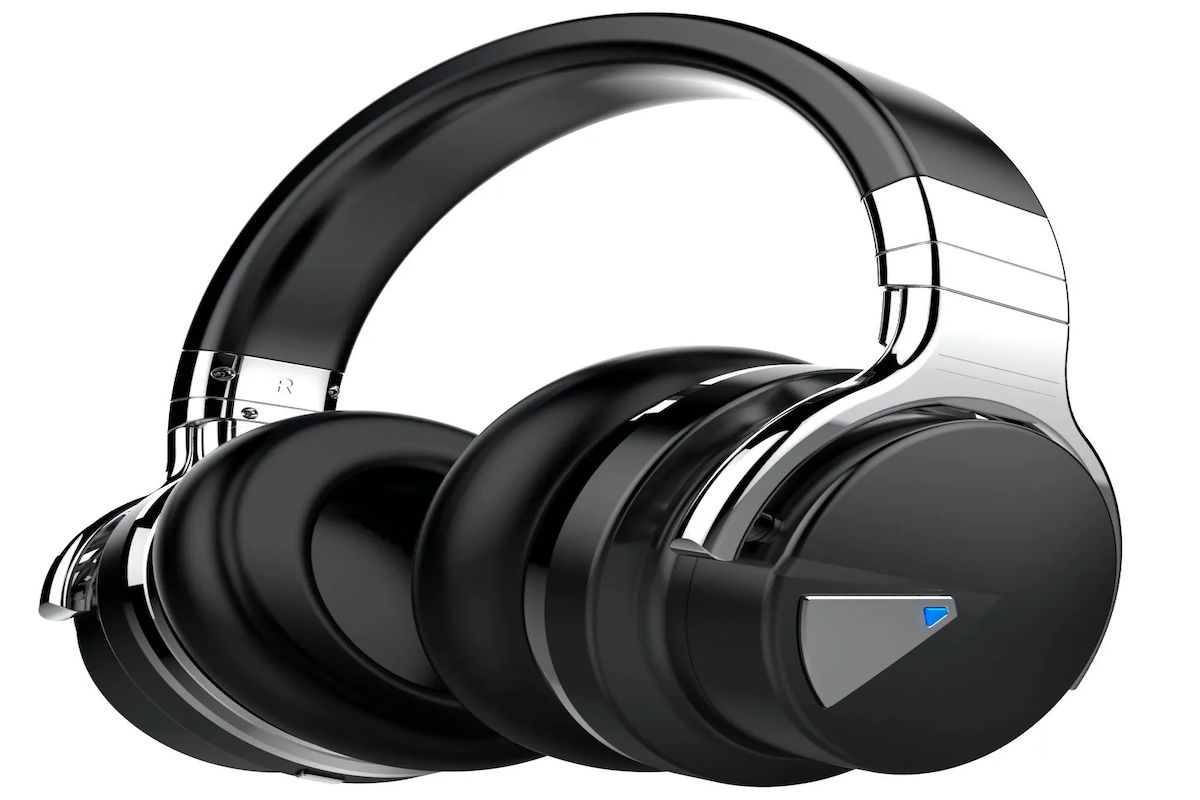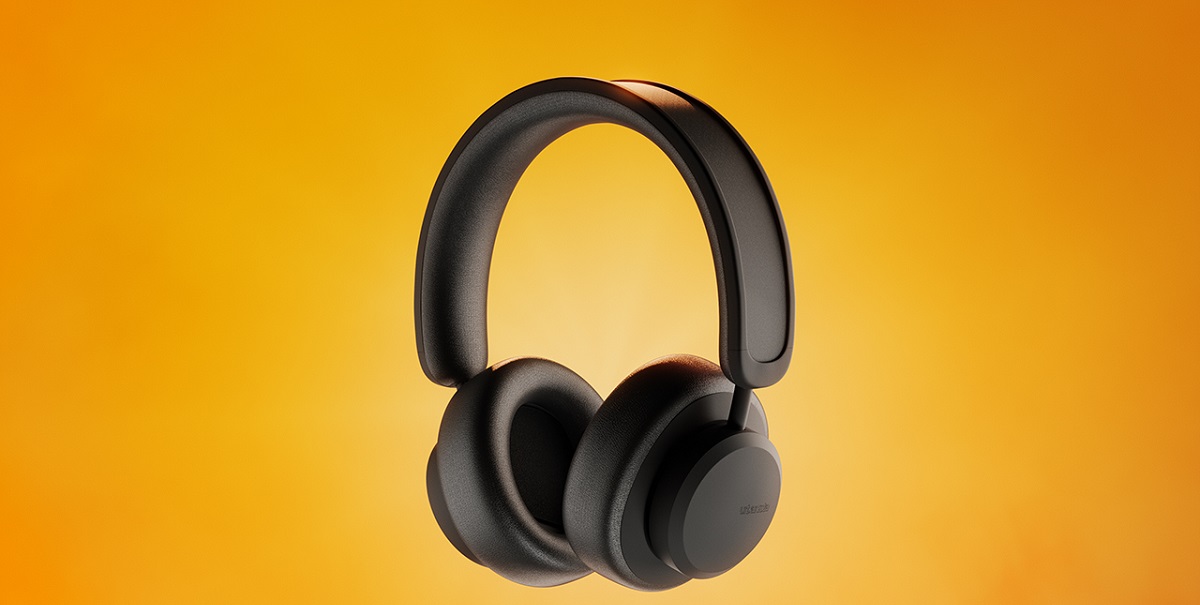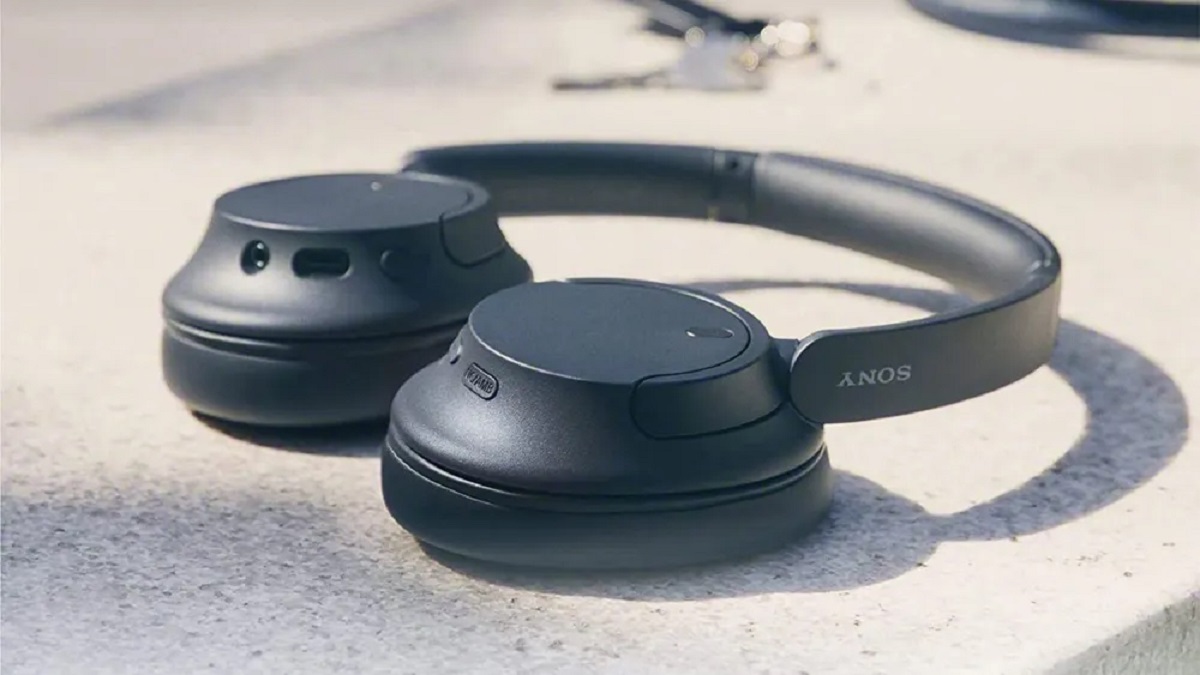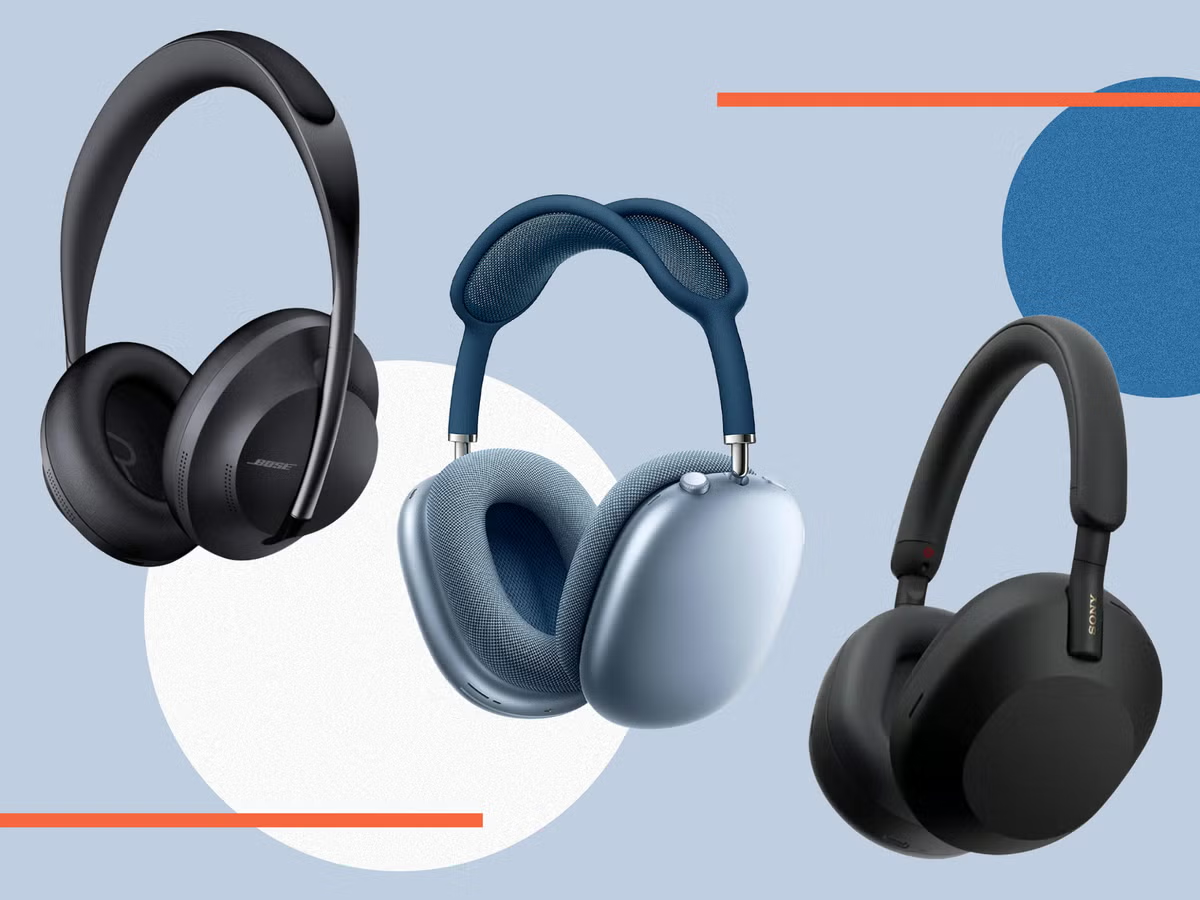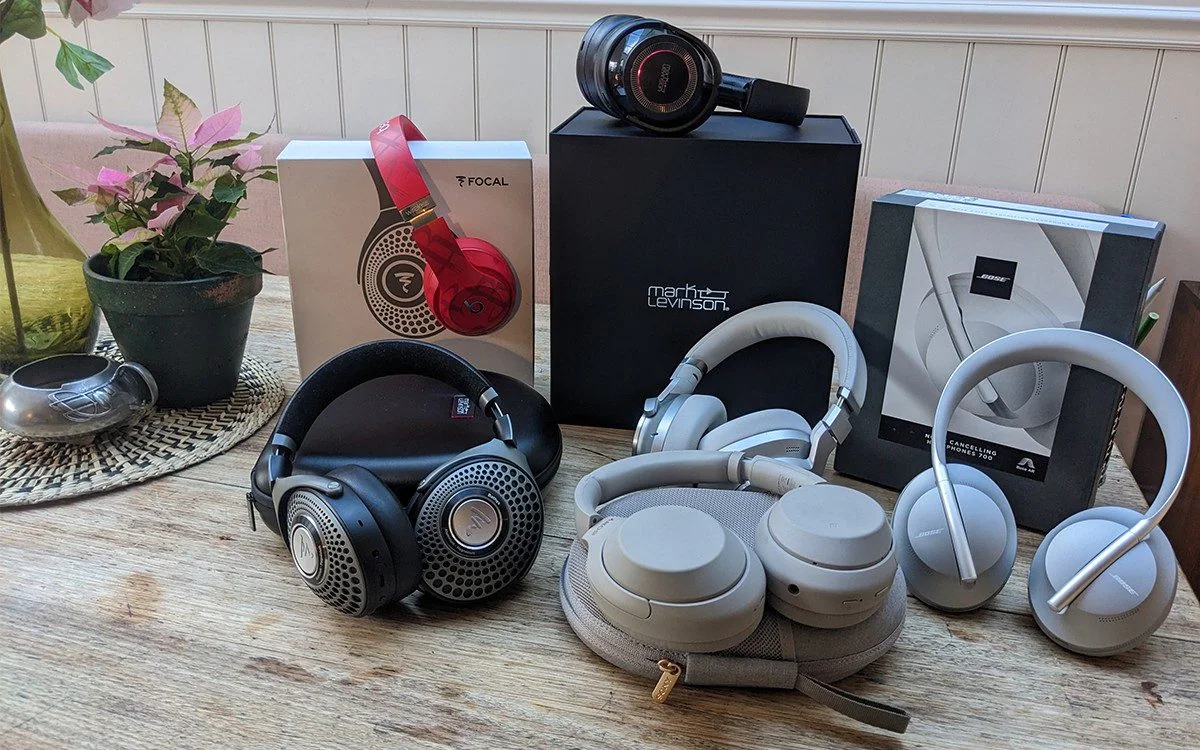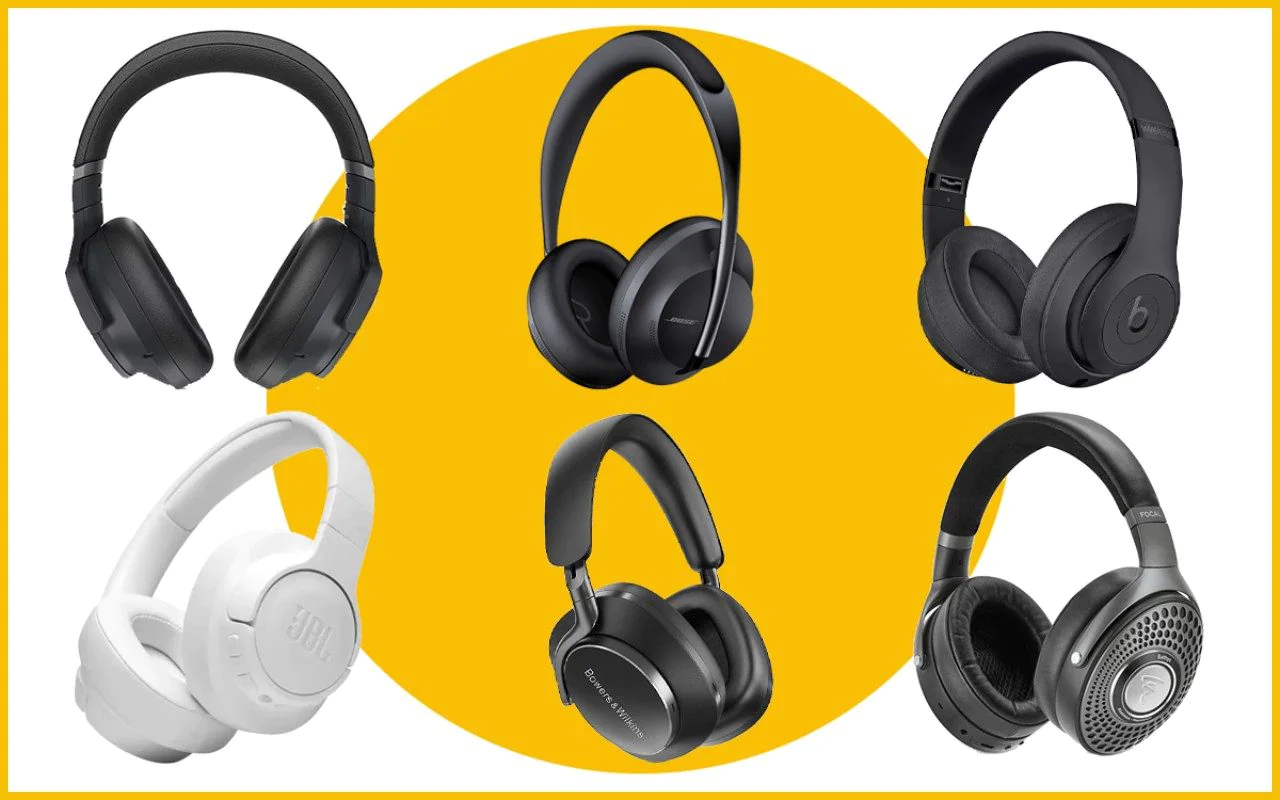Introduction
With the constant hustle and bustle of everyday life, finding a moment of peace and tranquility can be a challenge. Whether you’re in a bustling office, on a busy street, or sitting next to a chatty neighbor on a flight, noise can be a major distraction and source of irritation. Luckily, advancements in technology have given us a solution to combat unwanted noise – noise-cancelling headphones.
Noise-cancelling headphones have become increasingly popular in recent years, offering a way to enjoy music, movies, or simply enjoy some quiet time without the intrusion of external noise. But what exactly does noise cancelling mean? How does it work? And what are the different types of noise-cancelling headphones available?
In this article, we will explore the world of noise-cancelling headphones and answer these questions and more. Whether you’re a frequent traveler, a music enthusiast, or someone who simply craves a moment of silence, understanding noise-cancelling technology can greatly enhance your listening experience.
So, let’s dive in and discover what noise cancelling really means and how it can make a difference in our daily lives.
How Does Noise Cancelling Work?
Noise-cancelling headphones use a combination of advanced technology and clever design to reduce or eliminate unwanted background noise. The key concept behind noise cancellation is to create an “anti-sound” that effectively cancels out the incoming noise.
Active noise cancellation (ANC) is the most common technology used in noise-cancelling headphones. These headphones are equipped with tiny microphones on the earcups that pick up external sounds. The headphones then produce a sound wave with the exact opposite phase to the incoming noise, effectively canceling it out. This process is known as destructive interference, where the peaks and troughs of the sound waves cancel each other out. The result is a quieter and more peaceful listening experience.
It’s important to note that noise-cancelling headphones work best for steady, low-frequency sounds like the humming of an airplane engine or the rumble of a train. These constant sounds are easier to cancel out compared to sudden, sharp noises like a door slamming or a loud conversation.
Passive noise cancellation, on the other hand, relies on the physical design and materials of the headphones to block out external noise. Over-ear headphones with closed-back earcups provide a physical barrier that helps reduce external noise. The padding in the earcups also helps to create a seal around your ears, preventing sound from leaking in or out.
Combining active noise cancellation with passive noise cancellation provides the best results. The active noise cancellation technology actively cancels out external noise, while the passive noise cancellation design blocks out additional noise.
Overall, the technology behind noise cancelling headphones is truly remarkable. It allows us to create our own personal oasis of tranquility amidst a noisy world, immersing ourselves in the sounds we want to hear while blocking out the ones we don’t.
Active Noise Cancelling vs Passive Noise Cancelling
When it comes to noise-cancelling headphones, there are two main types: active noise cancelling (ANC) and passive noise cancelling. While both technologies aim to reduce external noise, they differ in how they achieve this.
Active noise cancelling headphones utilize advanced technology to actively cancel out unwanted noise. As mentioned before, these headphones use built-in microphones to detect external sounds. The headphones then generate sound waves with inverted phases to cancel out the incoming noise. This process effectively reduces or eliminates the external noise, allowing you to focus on your audio content or enjoy a moment of peace.
Passive noise cancelling, on the other hand, relies on the physical design and materials of the headphones to block out noise. Over-ear headphones with a closed-back design provide a physical barrier that seals in sound and prevents external noise from entering. The padding in the earcups also helps to create a tight seal around your ears, further reducing noise leakage.
While active noise cancelling headphones are more effective at reducing low-frequency constant noise like airplane engines or train rumble, passive noise cancelling headphones provide excellent noise isolation from a wider range of frequencies, including higher-pitched sounds or sudden noises.
One advantage of active noise cancelling headphones is their ability to let you customize the level of noise cancellation. Many active noise cancelling headphones come with adjustable settings that allow you to control the amount of external noise you want to cancel. This can be particularly useful if you still want to be aware of your surroundings or need to hear important announcements while wearing the headphones.
Passive noise cancelling headphones, on the other hand, do not require any power source or batteries to operate. They also tend to be more affordable compared to active noise cancelling headphones. This makes them a popular choice for individuals who want to enjoy enhanced audio experience without the need for additional technology.
It’s important to note that the effectiveness of noise cancellation can vary between different headphone models and brands. It’s always a good idea to read reviews and do some research before making a purchase to ensure you choose the type of noise cancelling that best suits your needs.
Types of Noise Cancelling Headphones
Noise-cancelling headphones come in various shapes, sizes, and styles. Understanding the different types can help you choose the right headphones that meet your specific needs and preferences. Here are some popular types of noise-cancelling headphones:
1. Over-ear headphones: Over-ear noise-cancelling headphones feature large earcups that fully enclose your ears. This design provides excellent noise isolation and comfort. Many over-ear models also offer superior sound quality due to their larger drivers and ample space for sound to resonate.
2. On-ear headphones: On-ear noise-cancelling headphones have smaller earcups that rest on your ears rather than completely enclosing them. They are generally more compact and portable than over-ear headphones. On-ear headphones are a great option if you prefer a lighter and more portable design but still want effective noise cancellation.
3. In-ear headphones: In-ear noise-cancelling headphones, also known as earbuds, offer a more lightweight and compact option. These headphones fit snugly into the ear canal, providing a secure and comfortable fit. In-ear headphones are highly portable and ideal for those who prefer a more discreet and low-profile option.
4. Wireless and true wireless headphones: Noise-cancelling technology is commonly found in wireless and true wireless headphones. These headphones connect to your device via Bluetooth, eliminating the need for cables. Wireless headphones offer the convenience of freedom of movement, while true wireless headphones have no wires at all, providing the ultimate portability.
5. Hybrid noise-cancelling headphones: Some manufacturers offer hybrid noise-cancelling headphones that combine both active and passive noise cancellation technologies. These headphones utilize active noise cancellation to eliminate low-frequency sounds and passive noise cancellation to block out higher-frequency noise. Hybrid models provide enhanced noise cancellation across a wider range of frequencies.
It’s worth noting that noise-cancelling headphones vary in terms of their features, battery life, audio quality, and price. Some models may offer additional functionalities like ambient sound modes that allow you to hear your surroundings without removing the headphones. It’s important to consider your specific requirements and budget when choosing the right type of noise-cancelling headphones for you.
Benefits of Noise Cancelling Headphones
Noise-cancelling headphones offer numerous advantages for both casual listeners and frequent travelers. Let’s explore some of the key benefits of using noise-cancelling headphones:
1. Enhanced audio experience: With noise-cancelling headphones, you can fully immerse yourself in your audio content. Whether you’re listening to music, watching movies, or enjoying audiobooks, noise cancellation allows you to hear every detail without background disturbances. This enhances the overall audio quality and provides a more enjoyable listening experience.
2. Increased focus and productivity: By blocking out external distractions, noise-cancelling headphones enable you to focus better on your tasks. This is especially beneficial in noisy work environments, crowded coffee shops, or during long flights. Noise cancellation helps reduce the mental strain caused by excessive background noise, allowing you to concentrate and be more productive.
3. Peace and relaxation: Noise-cancelling headphones create a personal sanctuary where you can escape the noise and find moments of tranquility. Whether you’re seeking a peaceful environment for meditation or simply want to relax with some soothing music, noise cancellation provides a calm and soothing atmosphere, promoting stress reduction and relaxation.
4. Improved sleep quality: If you’re traveling or living in a noisy environment, noise-cancelling headphones can be a game-changer for a good night’s sleep. By blocking out the sounds that may disturb your sleep, such as street noise or snoring, noise-cancelling headphones can help you sleep more deeply and wake up feeling refreshed.
5. Protection for your ears: Exposing your ears to high levels of noise for an extended period can lead to hearing damage. Noise-cancelling headphones can help protect your hearing by reducing the need to turn up the volume to overcome external noise. This is particularly beneficial in loud environments like concerts or when using lawnmowers or power tools.
6. Better travel experiences: Traveling can be exhausting, especially with the constant drone of airplane engines and public transportation. Noise-cancelling headphones can make your travel experiences more enjoyable by minimizing the noise of the engines, the chatter of fellow passengers, and other ambient sounds. This allows you to relax, watch movies, or listen to music without disturbance, making long journeys more pleasant.
Overall, noise-cancelling headphones offer a multitude of benefits that can enhance various aspects of your life. From improved focus and productivity to a better audio experience and increased relaxation, these headphones provide a valuable tool for finding tranquility in a noisy world.
Limitations of Noise Cancelling Headphones
While noise-cancelling headphones provide many benefits, it is important to be aware of their limitations. Here are some of the key limitations to consider:
1. Ineffectiveness against sudden or high-pitched sounds: Noise-cancelling technology is most effective in reducing continuous, low-frequency sounds like engine noise or traffic rumble. However, it may not be as effective in canceling out sudden, sharp sounds or high-pitched noises. Examples include a door slamming shut or a dog barking. You may still hear these sounds even while wearing noise-cancelling headphones.
2. Limited noise reduction for passive noise cancellation: While active noise cancellation provides an excellent reduction in external noise, passive noise cancellation that relies on physical design is less effective in blocking out noise. The extent of noise reduction with passive noise cancellation headphones may vary depending on the fit and the quality of the materials used.
3. Dependency on battery: Active noise cancellation requires power to operate. This means that noise-cancelling headphones rely on batteries or a charging source to function properly. If the battery runs out or is not charged, the noise-cancelling feature will not work, reducing the headphones’ effectiveness in blocking out external noise.
4. Added weight and bulk: Noise-cancelling technology often adds weight and bulk to the headphones. This can make them less comfortable to wear for extended periods, especially during physical activities or while traveling. It is important to consider the size and weight of the headphones to ensure they are suitable for your intended use.
5. Potential audio quality trade-off: Noise cancellation technology can sometimes affect the audio quality, especially in lower-end models. The active noise cancellation process may introduce subtle sound artifacts or alter the frequencies, resulting in a slight degradation of the overall sound experience. Choosing high-quality noise-cancelling headphones can minimize this trade-off.
6. Price: Noise-cancelling headphones tend to be more expensive compared to regular headphones without noise cancellation features. The advanced technology and additional components add to the cost. However, with the growing popularity of noise-cancelling headphones, there are now options available at various price points, offering more affordability.
Understanding these limitations can help manage expectations and ensure that noise-cancelling headphones are used in appropriate situations. Despite these limitations, noise-cancelling headphones still provide significant benefits in reducing unwanted noise and enhancing audio experiences in many environments.
Who Can Benefit from Noise Cancelling Headphones?
Noise-cancelling headphones can be a valuable companion for a wide range of individuals in various situations. Here are some examples of people who can benefit from using noise-cancelling headphones:
1. Commuters: Whether you’re taking public transportation or driving in a noisy city, noise-cancelling headphones can provide a peaceful commuting experience. By reducing the background noise, you can enjoy your favorite music, podcasts, or audiobooks without the distraction of external sounds.
2. Office workers: Working in a busy office environment can be challenging, with constant conversations, phone calls, and other distractions. Noise-cancelling headphones can help create a focused and productive workspace by reducing the surrounding noise and allowing you to concentrate on your tasks without disruptions.
3. Travelers: Noise-cancelling headphones are a must-have for frequent flyers or anyone who travels by plane, train, or bus regularly. These headphones can cancel out the engine noise, cabin chatter, and other ambient sounds, making long journeys more comfortable and enjoyable.
4. Students: Students often find themselves studying in bustling libraries, coffee shops, or dorm rooms with roommates. Noise-cancelling headphones can create a peaceful study environment, helping students to concentrate and retain information without being disturbed by external noise.
5. Audiophiles and music enthusiasts: If you have a deep appreciation for high-quality audio and enjoy immersing yourself in music, noise-cancelling headphones are a game-changer. By blocking out external noise, these headphones allow you to truly appreciate the nuances and details of your favorite tracks, delivering a more immersive listening experience.
6. Light sleepers: People who struggle with sleep due to noisy environments can find great relief with noise-cancelling headphones. Whether you’re living in a noisy neighborhood or sharing a room with a snoring partner, these headphones can help you relax, fall asleep faster, and stay asleep without being disturbed by external sounds.
7. Individuals with sensory sensitivities: People with sensory sensitivities, such as those on the autism spectrum or with sensory processing disorder, can benefit from noise-cancelling headphones. These headphones can help reduce overwhelming stimuli from noisy environments, providing a sense of calm and comfort.
Noise-cancelling headphones are versatile tools that can enhance the daily lives and experiences of many individuals. Whether you’re seeking focus, relaxation, or a better audio experience, these headphones can provide an invaluable solution to mitigate the impact of external noise.
How to Choose the Right Noise Cancelling Headphones
When it comes to selecting the right noise-cancelling headphones, several factors should be considered to ensure you choose a pair that suits your needs and preferences. Here are some key considerations when choosing noise-cancelling headphones:
1. Noise cancellation performance: The primary function of noise-cancelling headphones is to reduce or eliminate unwanted external noise. Research and read reviews to ensure that the headphones you are considering have a good reputation for effective noise cancellation, especially for the specific types of noise you want to block out.
2. Comfort and fit: Since you will likely be wearing noise-cancelling headphones for extended periods, it’s essential to choose a pair that is comfortable to wear. Look for headphones with plush ear padding and an adjustable headband to ensure a snug and comfortable fit. If possible, try them on before purchasing to assess their comfort level.
3. Audio quality: While noise cancellation is important, don’t overlook the audio quality of the headphones. Look for headphones that provide a balanced and clear sound reproduction. If possible, try different models and listen to various genres of music to gauge their sound performance.
4. Battery life: Active noise cancellation requires power, so it’s crucial to consider the battery life of noise-cancelling headphones. Look for headphones with a long battery life that can suit your needs, whether it’s for a long flight or an entire workday. Additionally, check if the headphones have a quick charge feature for convenience.
5. Wireless or wired: Decide whether you prefer wireless or wired headphones. Wireless noise-cancelling headphones offer the convenience of freedom of movement, while wired headphones ensure a continuous connection without concerns about battery life. Consider your preferences and the devices you will be using the headphones with.
6. Additional features: Some noise-cancelling headphones come with additional features that can enhance your listening experience. These may include built-in microphones for phone calls, touch controls, customizable sound profiles, or smart assistant integration. Assess which features are essential to you and align with your usage requirements.
7. Price and budget: Set a budget for your noise-cancelling headphones and consider the options within that range. While higher-end models often offer the best noise cancellation and audio quality, there are also reputable options available at more affordable price points. Research and read reviews to find the right balance between price and performance.
8. Warranty and customer support: Finally, be sure to check the warranty and customer support offered by the headphone manufacturer. This can provide peace of mind in case of any issues or defects with the headphones, ensuring that you can receive proper assistance and support.
By considering these factors, you can make an informed decision and choose noise-cancelling headphones that meet your specific needs, preferences, and budget.
Conclusion
Noise-cancelling headphones have revolutionized the way we experience sound in a noisy world. They provide an effective solution for blocking out unwanted noise and creating a more immersive and enjoyable listening experience. Whether you’re a frequent traveler, a student, an office worker, or simply someone seeking moments of tranquility, noise-cancelling headphones offer a range of benefits.
Through active noise cancellation or passive noise isolation, these headphones enable you to focus, relax, and enjoy your audio content without the distractions of the outside world. They can enhance productivity, provide a peaceful journey during travel, protect your ears, and offer a better audio experience overall.
When choosing noise-cancelling headphones, it’s important to consider factors such as noise cancellation performance, comfort, audio quality, battery life, wired or wireless options, additional features, and your budget. By finding the right balance between these factors, you can select a pair of headphones that meets your specific needs and preferences.
Regardless of the type or model of noise-cancelling headphones you choose, they undoubtedly provide a valuable tool for finding moments of tranquility and enhancing your overall listening experience. So, go ahead and immerse yourself in the sounds you love while blocking out the noise that interferes, and discover a whole new world of audio enjoyment.









